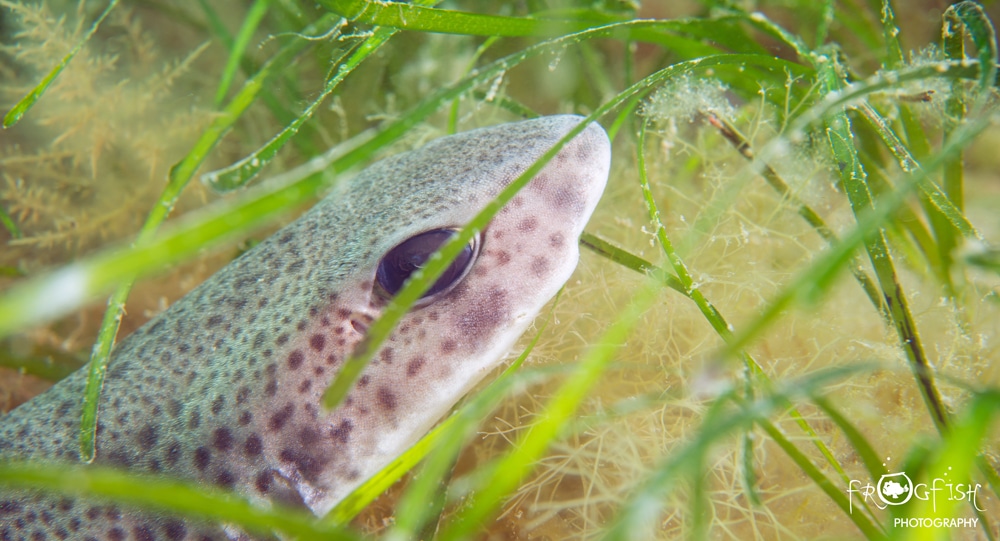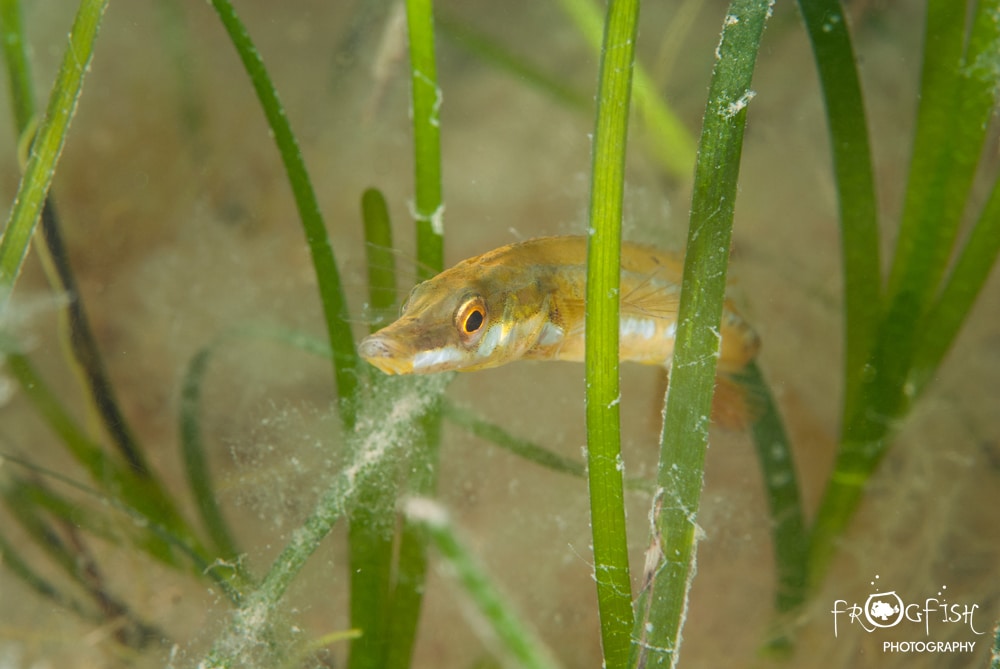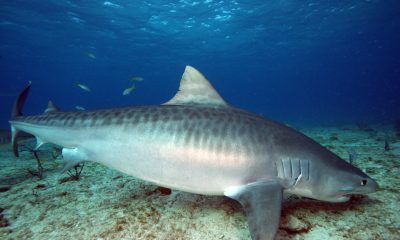Marine Life & Conservation
41 New Marine Conservation Zones welcomed by MCS

 The UK’s leading marine charity, the Marine Conservation Society (MCS), says it welcomes the Government’s announcement of the creation of 41 new Marine Conservation Zones (MCZs), but warns that proper investment in their management and monitoring must be made if they are to benefit both people and wildlife.
The UK’s leading marine charity, the Marine Conservation Society (MCS), says it welcomes the Government’s announcement of the creation of 41 new Marine Conservation Zones (MCZs), but warns that proper investment in their management and monitoring must be made if they are to benefit both people and wildlife.
21,000 people took part in last summer’s MCS campaign urging Environment Secretary, Michael Gove, to be ambitious and designate 41 sites offered for public consultation at the time.
The new MCZs include inshore and offshore areas around the coast, and will protect a range of marine wildlife including worms, starfish, sea firs, sea urchins, spiny lobster, molluscs, fan mussels, tentacled lagoon worm, short-snouted seahorse and native oyster. A wide variety of habitats will also be protected including sand, tidal mud, rocky reefs and gravel.
“This is great news for marine wildlife and we are delighted that government has approved the protection of these special marine areas,” said Dr Jean-Luc Solandt, MCS Principal Specialist, MPAs. “The UK has a growing network of more than 300 marine protected areas, but the government must now invest in proper management of these sites and keep them free of all activities that damage the seabed so that our spectacular marine wildlife can recover from decades of destruction and degradation.”
The new sites include Beachy Head East, a large inshore site that encompasses the seas next to Eastbourne, Bexhill and Hastings in Sussex, and is home to an incredible diversity of fish, including seahorses. A locally-run campaign ‘Backing Beachy Head East’ was supported by the MCS Agents of Change project, and attracted the support of fishermen, anglers, local businesses and all three local MPs.
Other sites given protection include Orford Inshore off Suffolk, Markham’s Triangle off the North East coast, Ribble Estuary off the Lancashire coast, Kentish Knock East, Bembridge off the east coast of the Isle of Wight, Purbeck coast off Dorset, Devon‘s Dart Estuary and Helford Estuary by the Lizard in Cornwall. Two other sites off the Northern Ireland coast are also included – South Rigg and Queenie Corner.
“These new offshore sites present exciting opportunities to include Highly Protected Marine Areas, where all activities like dredging, and bottom-towed trawling are kept out and species of commercially important fish, and the habitats they depend on, can properly recover and flourish,” said Dr Solandt. “Highly Protected Marine Areas are an important element of a protection network as they allow the rewilding of our seabed. These sites are also good for carbon sequestration through the recovery of shellfish beds and other habitats, helping us mitigate against the threat of climate catastrophe.”
Evidence about the importance of the many of these new MCZs was gathered by divers from Seasearch, the volunteer dive programme coordinated by MCS, and was presented to Defra to inform their decisions. Dr Charlotte Bolton, National Seasearch coordinator said: “Our divers have spent hours and hours diving England’s incredibly diverse seabed habitats to record the marine plants and animals that inhabit our inshore seas. Through this meticulous citizen science we have been able to make the case for the protection of many of these new sites, and we look forward to helping local authorities develop robust management and monitoring plans for these MCZs so that the amazing marine life they protect really can recover.”

Sue Ranger, MCS Conservation Engagement and Education Manager, who has studied the connection between the sea and wellbeing says the wildlife and habitats in these MCZ’s connect us to the ocean by playing an unseen role in our lives: “If we look after it properly now, seagrass will go on stabilising the seabed and storing carbon; oyster beds will go on filtering the water and improving its quality and estuaries will continue to provide nursery grounds for fish.”
MCS says that the designation of the 41 is only half the battle. The charity says it will now be working to achieve proper management of all marine protected areas and will be engaging with Defra to ensure that conservation policies and regulations are fit for purpose. It will also continue to collect seabed data and work with local communities through Seasearch and the Agents of Change project.
For more information about the Marine Conservation Society visit their website by clicking here.
Marine Life & Conservation
Leading UK-based shark conservation charity, the Shark Trust, is delighted to announce tour operator Diverse Travel as a Corporate Patron

 Corporate Patrons provide a valuable boost to the work of The Shark Trust. The Trust team works globally to safeguard the future of sharks, and their close cousins, the skates and rays, engaging with a global network of scientists, policymakers, conservation professionals, businesses and supporters to further shark conservation.
Corporate Patrons provide a valuable boost to the work of The Shark Trust. The Trust team works globally to safeguard the future of sharks, and their close cousins, the skates and rays, engaging with a global network of scientists, policymakers, conservation professionals, businesses and supporters to further shark conservation.
Specialist tour operator Diverse Travel has operated since 2014 and is committed to offering its guests high quality, sustainable scuba diving holidays worldwide. Working together with the Shark Trust will enable both organisations to widen engagement and encourage divers and snorkellers to actively get involved in shark conservation.
“Sharks are truly at the heart of every diver and at Diverse Travel, we absolutely share that passion. There is nothing like seeing a shark in the wild – it’s a moment that stays with you forever!” says Holly Bredin, Sales & Marketing Manager, Diverse Travel.
“We’re delighted to celebrate our 10th year of business by becoming a Corporate Patron of the Shark Trust. This is an exciting partnership for Diverse and our guests. We will be donating on behalf of every person who books a holiday with us to contribute towards their vital shark conservation initiatives around the world. We will also be working together with the Trust to inspire divers, snorkellers and other travellers to take an active role – at home and abroad – in citizen science projects and other activities.”
Paul Cox, CEO of The Shark Trust, said:
“It’s an exciting partnership and we’re thrilled to be working with Diverse Travel to enable more divers and travellers to get involved with sharks and shark conservation. Sharks face considerable conservation challenges but, through collaboration and collective action, we can secure a brighter future for sharks and their ocean home. This new partnership takes us one more valuable step towards that goal.”
For more information about the Shark Trust visit their website here.
For more about Diverse Travel click here.
Marine Life & Conservation
Shark Trust Asks Divers to help with Shark Sightings this Global Citizen Science Month

 Whether you are stuck for ideas of what to do with the kids or are off on the dive trip of your dreams. You can get involved in Citizen Science Month and help the Shark Trust by providing vital data about sharks are rays both close to home and further afield.
Whether you are stuck for ideas of what to do with the kids or are off on the dive trip of your dreams. You can get involved in Citizen Science Month and help the Shark Trust by providing vital data about sharks are rays both close to home and further afield.
In addition to reporting the sharks and rays you see on your dives, the eggcases you find on the beach, the Shark Trust is looking for some specific data from divers who are asked to report any Oceanic Whitetip and Basking Sharks.
Oceanic Whitetip Sharks
The Shark Trust are looking specifically for Oceanic Whitetip Shark sightings over the coming weeks and months. So, if you are diving anywhere in the world, please report your sightings via the website or app.
Website: https://recording.sharktrust.org/
App: Search The Shark Trust in your app store
The Oceanic Whitetip. Known for their incredibly long dorsal and pectoral fins, this species was once the most abundant oceanic-pelagic species of shark on the planet.
Large and stocky, they are grey or brown above, and white below and famous for their huge rounded first dorsal fin and paddle-like pectoral fins. The fins also highly prized within the shark fin trade. Whilst they are mostly solitary, Oceanic Whitetips do occasionally hunt in groups.
An inquisitive species, they were easy prey for fisheries. Combined with their low reproductive rate, they were inevitably at high risk of population depletion. And declines of up to 99% have been reported in certain sea areas. They are listed as Critically Endangered on the IUCN Redlist (2019).
Conservation efforts to discourage further declines include listing on CITES Appendix II and CMS Appendix I. They’re also the only species prohibited from take by all the Tuna RFMOs (Regional Fisheries Management Organisations). However, these measures do not mean that Oceanic Whitetips are not still caught – whether targeted or as bycatch – in some parts of the world. With populations declining at such a high rate, effective implementation of management measures is essential to ensure that the species can recover.
If you are lucky enough to get an image of an Oceanic Whitetip and you record your sighting on the Shark Trust app or website YOU CAN WIN! All images submitted with sightings, that also give consent to use in conservation messaging, will be in with a chance to win an Oceanic Whitetip T-shirt and mug. The competition will run until the end of “Shark Month” in July – so keep those sightings (and images) coming in.
Basking Sharks
Basking Shark (Cetorhinus maximus) season is upon us, and the Shark Trust is asking everyone to keep an eye out for these majestic giants over the summer months. If you see any, you can record your sighting to the Basking Shark Sightings database.
Each year, these mighty fish return to British waters to feed on plankton. You may see one, (or a few if you’re really lucky) from around April-October. They can be seen feeding at the surface of the water, where they look like they’re basking in the sun. Thus, their name!
Sighting hotspots around the British Isles include southwest England, Isle of Man, north coast of Ireland, and western Scotland. The Sea of the Hebrides is the most prolific sightings area in Scotland, but they have been spotted all around the coast and have even ventured into some of the sea lochs. The Shark Trust has received thousands of sightings since the Basking Shark project began, but more data is needed to truly understand what is going on with population numbers and distribution. You can help by recording your sightings this summer.
Great Eggcase Hunt
The Shark Trust has an Easter Egg Hunt with a difference for you to try. Take part in the Great Eggcase Hunt and get involved with a big citizen science project that helps shark, ray and skate conservation. And it’s an enjoyable activity for all the family.
The Shark Trust also want snorkellers and divers to record their underwater eggcase findings. Underwater records help pinpoint exactly where sharks and skates are laying their eggs and can help link to beach records. Learning the depth and substrate that they lay on also helps better understand the species.
Find out more: https://www.sharktrust.org/great-eggcase-hunt
Whether you are diving, snorkelling or exploring on the beach you can take part in Citizen Science Month and get actively involved in shark and ray conservation. Find out more: www.sharktrust.org
-

 News3 months ago
News3 months agoHone your underwater photography skills with Alphamarine Photography at Red Sea Diving Safari in March
-

 News2 months ago
News2 months agoCapturing Critters in Lembeh Underwater Photography Workshop 2024: Event Roundup
-

 Marine Life & Conservation Blogs2 months ago
Marine Life & Conservation Blogs2 months agoCreature Feature: Swell Sharks
-

 Blogs1 month ago
Blogs1 month agoMurex Resorts: Passport to Paradise!
-

 Gear News3 months ago
Gear News3 months agoBare X-Mission Drysuit: Ideal for Both Technical and Recreational Divers
-

 Blogs2 months ago
Blogs2 months agoDiver Discovering Whale Skeletons Beneath Ice Judged World’s Best Underwater Photograph
-

 Gear Reviews2 months ago
Gear Reviews2 months agoGear Review: Oceanic+ Dive Housing for iPhone
-

 Blogs3 months ago
Blogs3 months agoThe Thrilling Encounter with Tiger Sharks at Beqa Lagoon’s ‘The Colosseum’ with Coral Coast Divers









